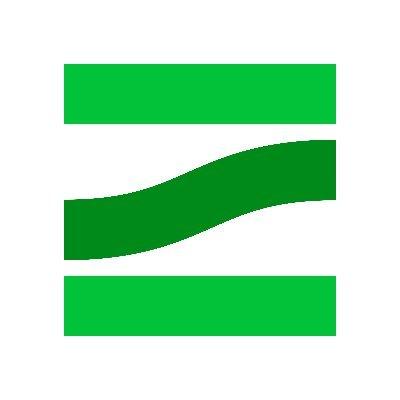Buy pre-IPO stock in private companies
Invest in startups
Investments
$10,000
The minimum investment on EquityZen is $10,000, though this may vary by offering.
High Risk
4/5
Investing in private companies via EquityZen involves risks such as limited liquidity, market volatility, company performance uncertainties, regulatory changes, less available information, and potential lack of diversification, which could impact investment returns.
High Risk
4/5
Investing on Republic involves significant risks such as the potential total loss of investment, illiquidity, long-term commitment without guaranteed returns, risk of dilution, limited information on investments, and possible impacts from regulatory changes.
Minimum Liquidity
1/5
EquityZen offers liquidity for vested shares only. It does not provide liquidity for unvested shares, unvested RSUs, or options directly.
Minimum Liquidity
1/5
Investments on Republic are generally illiquid, meaning it may be difficult to sell or convert them into cash quickly.
Receive new reviews from Fintorial
Not Predictable Return
N/P
Unlike public market investments, private investments carry higher risks and unpredictability. Consequently, it's challenging to define a standard return rate for EquityZen investments.
Not Predictable Return
N/P
Returns on Republic depend on the success of invested projects, companies, or funds, with potential payouts varying by investment terms.
Long-term Investment
2-5 years
Typically, companies on EquityZen have received late-stage funding, suggesting an expected investment horizon of 2-5 years, but outcomes can vary widely.
Long-term Investment
3-10 years
Investments on Republic typically have a long-term horizon, often requiring several years to over a decade before potential returns are realized.
Who can invest
International
Anyone 18 or older can invest on Republic, with specific eligibility and investment limits varying by campaign. International investors can participate in many offerings, subject to local laws and specific campaign terms.
Moderate Volatility
3/5
Assets on EquityZen, which are shares in private companies, can be highly volatile due to limited public information, sensitivity to market conditions, low liquidity, and company-specific events, leading to significant price fluctuations.
Moderate Volatility
3/5
Assets on Republic, like startups and private ventures, exhibit high volatility due to factors like market sentiment, regulatory changes, and business uncertainties. Valuation changes can be sudden and significant, reflecting the inherent risks and potential rewards of these types of investments.
Regulation and audits
SEC Regulated
EquityZen Securities is registered with the SEC and is a member of FINRA/SIPC, ensuring it adheres to regulatory standards and practices for investor protection and undergoes regular audits.
Regulation and audits
SEC Regulated
Republic operates under SEC regulations like Reg CF, Reg A+, and Reg D, ensuring transparency and investor protection. Companies on Republic must adhere to disclosure and, in some cases, undergo financial audits or reviews.
Insurance
No
EquityZen is a FINRA/SIPC member firm, offering account protection up to $500,000 (including $250,000 for cash claims) through SIPC in case of brokerage failure, not covering market value losses.
Insurance
No
Investments on Republic are not covered by traditional insurances or state guarantees like FDIC protection.
Payouts
No Recurring Payouts
Investors in private companies on EquityZen typically do not receive dividends, as these companies often reinvest profits to fuel growth.
Payouts
No Recurring Payouts
Dividends on Republic are not standard across all investments and depend on the specific agreement with each company. Some investments may offer dividends through revenue-sharing arrangements, but many startups prioritize reinvestment over distributing earnings.
Withdrawals
Investors can get their money back from investments on EquityZen mainly through an IPO, acquisition of the company, or secondary market sales on the platform. However, returns depend on market demand and timing of these liquidity events, with no guaranteed timeline.
Withdrawals
On Republic, returns mainly come from liquidity events like acquisitions or IPOs, but these are uncertain and can take years. Selling shares directly is typically not possible within the first year due to federal restrictions, with few exceptions. Even after this period, the resale market is limited and subject to legal considerations.
Extra Fees
Yes
EquityZen charges a 5% fee to sellers upon transaction closure. For investors, a one-time sales fee applies: 5% for investments up to $500,000, 4% for $500,000 to $1 million, and 3% for over $1 million.
Extra Fees
Yes
Republic charges an administrative fee for investment commitments, typically 2%, with a minimum of $5 and a maximum of $300, varying by offering. This fee is refunded if an offering is canceled or withdrawn but not if the investor cancels their commitment.
Taxes
Tax Form
EquityZen issues a Schedule K-1 for taxable events and provides vetted tax documentation to investors. Upon investment, individuals complete necessary tax forms (W-9 or W8-BEN) and receive annual tax updates.
Taxes
Annual Statement
Republic does not provide tax documents or specific tax guidance for investments. Tax implications, such as for Crowd SAFE and Token DPA investments, depend on the investment's nature and liquidity events.

